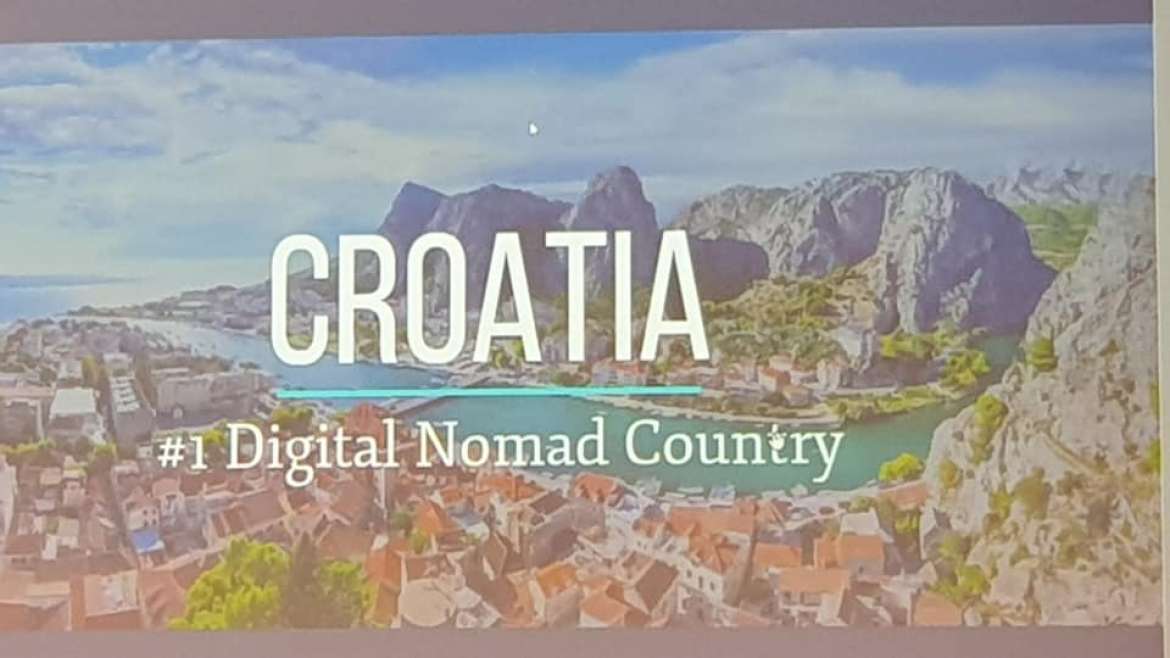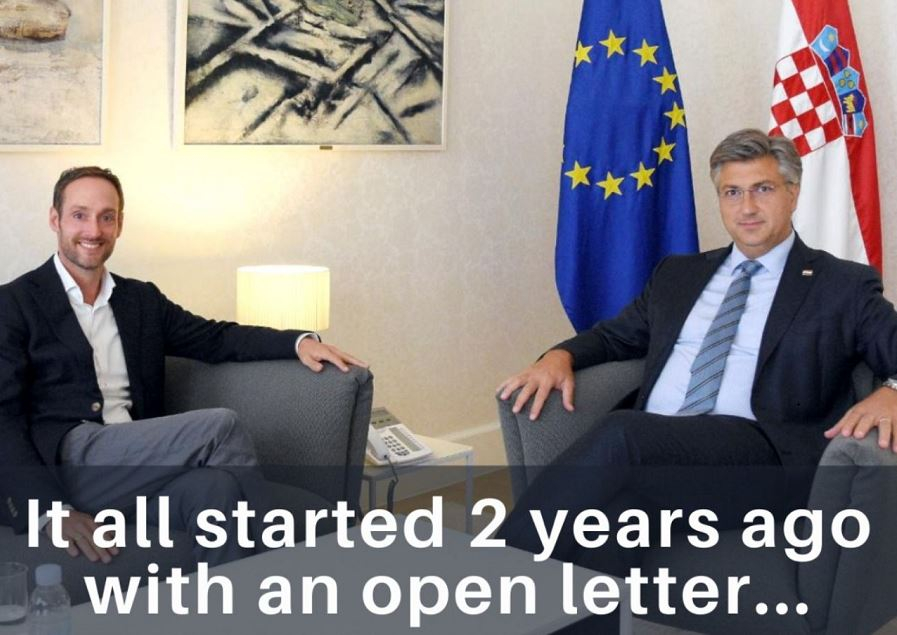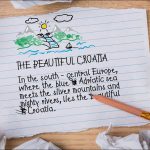Just over 2 years ago, an article quoting me in the Croatian media resulted in me getting sued. The next hearing is in November, and it will probably be another couple of years until the case is resolved.
Such is the nature and speed of Croatian bureaucracy. While these examples may seem extreme, they are by no means atypical. The wheels of Croatian bureaucracy tend to move slowly.
But then on occasion – incredibly, refreshingly – an example of Croatian efficiency appears that gives us a tantalising glimpse of how the future might look, and just how well Croatia could work with everyone pulling in the right direction.
I have been writing about the Croatian digital nomad opportunity for more than 3 years now since it first appeared as a strategy for Croatia at a conference, and as part of my suggested Branding Croatia for the Future: 5 Gifts and Trends to Focus On.
But the day Croatia’s digital nomad journey really started to move celebrated its 2-year anniversary this week, the catalyst being an open letter on LinkedIn from Split-based Dutch entrepreneur, Jan de Jong, to Prime Minister Andrej Plenkovic on LinkedIn, asking for the introduction of a digital nomad visa Croatia.
What happened next was really quite astounding, at least to this long-term resident of a country where bureaucracy is king. Less than 6 months after that open letter, de Jong not only had met with the Prime Minister, but also worked with 5 ministries on the details, with the end result that on January 1, 2021 Croatia introduced its digital nomad permit, only the second of its kind in Europe after Estonia. Having introduced Jan to the digital nomad concept, he kept me closely informed of progress over those months (and which we reported step by step on TCN), and the determination of Jan and those around him, coupled with the willingness of public officials to push this forward was a joy to report on.
It also made one wonder that if it was possible to go from LinkedIn open letter to changing the Aliens Act and tax code and introduce a new permit in less than 6 months, what else could be achieved if the people who run this country put their minds to it? And if Croatian bureaucracy could be solved for a case like this, what would it take to make the digital nomad bureaucratic road map a standard for the rest of Croatian bureaucracy?
But that is a discussion for another time.
The last two years have seen immense progress for Croatia in what is perhaps one of the biggest potential growth areas for tourism in this country. Remote work is perhaps not a classic tourism sector, but as the world changes and we look for more sustainable solutions beyond beach overtourism in the peak season, the rise of the workation is showing no signs of slowing down. A cursory summary of the needs of this new tourism niche shows that Croatia is in pole position to take advantage – Lifestyle: NomadList Shows Why Croatia Most-Liked Remote Work Destination in Europe.

What happened next was a little unexpected. Just 5 months after Jan’s post, the first claim by an industry insider that Croatia had the potential to become the world’s number one digital nomad community was made at the first-ever dedicated digital nomad conference in Croatia in October, 2020 – Dubrovnik for Digital Nomads, organised by Saltwater Nomads, Dubrovnik Tourist Board, the City of Dubrovnik, and TCN. The claim, by Travel Off Path’s Kashlee Kucheran, certainly helped Croatia’s pioneers with encouragement and belief.
Kashlee may have been early, but she was not alone, with Croatia featuring as the second most-liked destination for nomads in the influential NomadList 2021 AND 2022 surveys. And there was more good news below the headlines, with Zagreb featuring in the 5th most-liked destinations in the world (and number 1 in Europe), as well as the fastest-growing remote work hun in Europe over the last five years.
An absolute key to Croatia’s success has been the excellent public-private partnership on so many levels, a partnership that is often commented on by visiting nomads, as such a thing hardly exists in other countries. Most of the initiatives have come from the private sector, but they have been enthusiastically embraced by the public sector, with the digital nomad permit being a great example.
But there have also been excellent collaborations at the regional level, and the award-winning Zagreb Digital Nomad Week (Saltwater Nomads, TCN and Zagreb Tourist Board) and Dubrovnik Digital Nomads-in-Residence (Saltwater, TCN, City of Dubrovnik, Dubrovnik Tourist Board) are among several projects that have really helped lift Croatia’s global visibility.
So too the formation of the world’s first-ever Digital Nomad Association, DNA Croatia, which was founded by de Jong, Saltwater’s Tanja Polegubic, and Karmela Tancabel, and really pushed forward by its first director, Michael Freer, to build an umbrella and a community to serve and advocate for the needs of the incoming digital nomads. DNA Croatia has also inspired similar associations in other countries. It is fair to say that Croatia has definitely arrived as a global voice in the remote world, something that was in evidence in the rich lineup of international participants at this year’s Dubrovnik Work. Place. Culture. conference.
DNA Croatia has also signed a partnership with the Croatian National Tourist Board, which is excellent news, allowing the public and private institutions dedicated to developing this sector to work in tandem.
And the community is growing and becoming more integrated. A very nice eco-system is developing, and the mindset is slowly starting to dripfeed into Croatian society. With emigration often the number one priority for Croatian youth in search of opportunity, the arrival of a growing number of successful and happy international workers, who are choosing Croatia for its lifestyle and opportunity is giving pause for thought.
It has been an incredible two years of positive change and great energy. The power of a social media post, public-private partnership, and community to effect change. A lot has been achieved in just two years. Fasten your seatbelts, as the next two years promises to be even more exciting.
For more news and features on digital nomads in Croatia, follow the dedicated TCN section.










